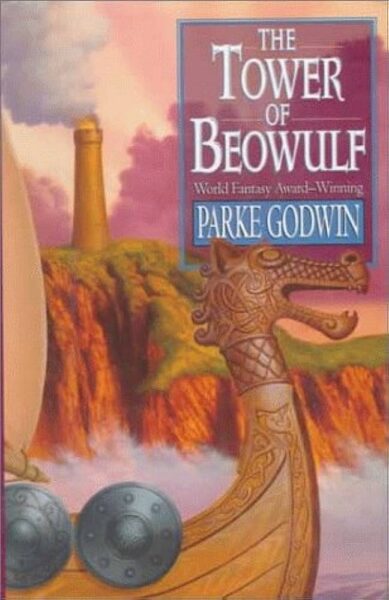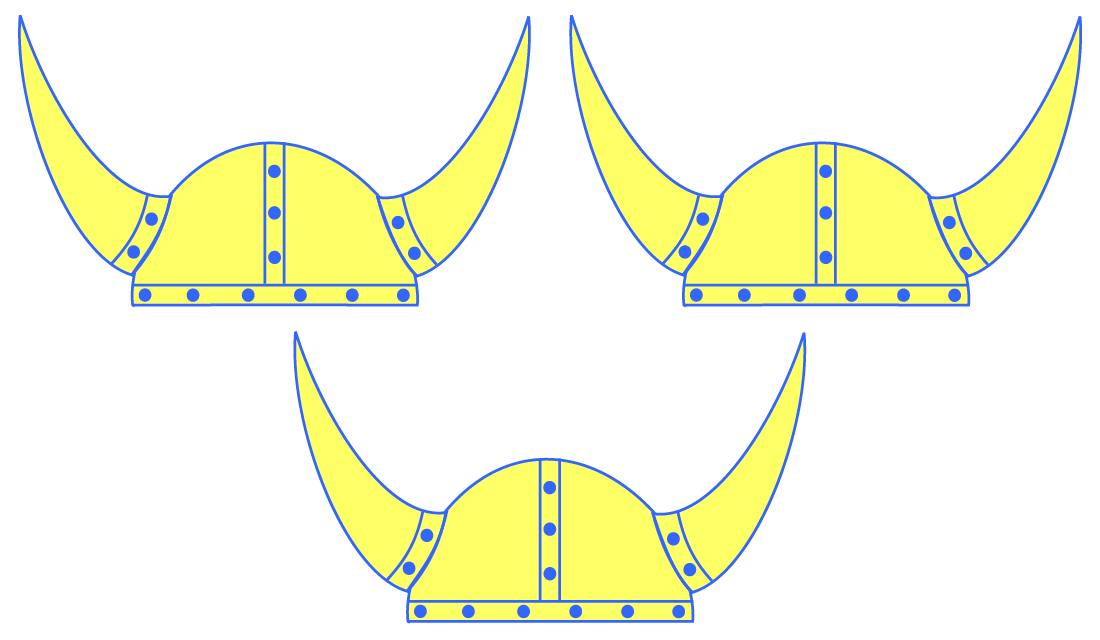“Nothing answered Grendel but the wind and the little snow-ghosts whirling through the ruined doors. He had spoken, but so had the voices from the east, the name blurred but with message clear. Someone of name was coming to Heorot.”

Thus is Grendel’s doom rather dramatically foreshadowed in Parke Godwin’s The Tower of Beowulf (though nothing about this should be surprising; Grendel has been dying in Beowulf for over a thousand years). The Tower of Beowulf is simply an action-packed novelization of the ancient poem. Released in 1995, the book is sadly now out of print, as are all of Godwin’s other books, which are predominately retellings and novelizations of ancient British tales or legendary events in British history. Apparently, they just didn’t have much staying power despite receiving rave reviews from contemporary heavyweights like Robert Jordan, Terry Brooks, and Morgan Llwelyn.
Anyway, The Tower of Beowulf is a retelling that stays true to its setting and the overall perspective of the original poem. Thus, we’re taken back Denmark (and Geatland) in the Dark Ages, and while Grendel and his mother are somewhat humanized and Beowulf is somewhat flawed, the book does not twist the overall tale in an attempt to cast Grendel and his mother as victims of Hrothgar and/or Beowulf. Over the course of The Tower of Beowulf, Godwin certainly offers some criticism of the old warrior culture and its brazen obsession with violence, but the heroes remain heroes and the monsters remain monsters, and in this day and age, that’s actually fairly refreshing.
Personally, I thought Godwin did a great job of tying the loose threads together to create a plausible background for Grendel and his mother as descendants of Loki, as well as explaining the origins of the dragon. Some of Godwin’s details are off (he describes Thor’s chariot as being pulled by horses rather than goats, for example) but overall, the inventions he introduces to bolster the action of the novel—which remains pleasantly faithful to the old poem—are well thought-out.
Godwin’s characterization of Beowulf himself is a bit melodramatic for my taste. We are treated a little too often to Beowulf’s internal monologues and how he has already died, or has died multiple times over the course of his short life so far, or doesn’t know what it’s like to be alive, etc. (Beowulf isn’t actually dead in Godwin’s tale, he’s just dead inside and bemoans it a lot). But that’s really my one criticism of the book, aside from some minor squabbling over mythological details.
Overall, The Tower of Beowulf is an entertaining book and fun rendition of the old story. It isn’t another subversive reinvention attempting to make a statement and turn the tables on the traditional tale. It’s a simple 20th century pulp paperback action fantasy novel, and should be read as such. It also contains a number of well-worded, witty, and sometimes epic (perhaps even overwrought) passages, and some of the most memorable of those passages are included below for your perusing pleasure. And lastly, a shout of thanks to Dirk Puehl for tipping me off about this one!
“ ‘Deal with what you are, my son. Eat the goat.’ ”
“From the flat, tuneless sound of Thor whose voice was never meant to sing, Grendel knew he was drunk.”
“Grendel raised his hard arms like battering rams and burst through the doors, his hurtling passage carrying him well within the darkened hall.
‘Wake, you Danes!’ he bellowed at the dim forms stirring from sleep. ‘Your king comes for tribute!’ ”
“ ‘As a boy, he had many fears. After that madness with Brecca, he had none, but that was when I ceased to know him really.’
‘Distant.’
‘More, my lord. Something beyond death.’ ”
“ ‘Peace, now: I think Hrothgar comes to say goodnight—or goodbye, depending on your point of view.’ ”
“From the beginning, the fates had discarded the snarl of her life in this black cesspool of a mere. Even then, she had been content to sit as queen in Heorot, empty and dark as it was, seeing her son in Shild’s place, but now she would tear all, wreak such havoc as would send harpers yet unborn to their direst word-hoards to find a new color for ruin in the red wake of her purpose.”
“The scop had chosen the lay of Finn and Hengest, known in every hall of the north, a tale of fruitless battle, uneasy truce, treachery, and revenge. For the first time in his life, perhaps abetted by the drink, Beowulf realized how much of futility and defeat ran through their most heroic legends.”
“ ‘Men are what they are and most will ever find your way easier. Whatever god or cause, they will find it simpler to die for something than to live with it.’ ”
“With a stream of flaming breath, a flat, elongated head appeared, followed by leathery wings folded tight as the creature writhed free, teetered, and then plummeted down the cliff face.”
“A brave king was a treasure to his tribe, a brave fool only a liability.”
“Light streamed through the gaping wound in the cliff face torn by the dragon in pursuit of its mindless vengeance, illuminating a scene to beggar the ravings of a lunatic.”
“Beowulf raised his sword and smote it, ringing, on the shield. Iron battered iron again and again, destiny’s alarm, piercing the serpent’s small, murderous brain and rousing it to peril that now charged out of the tunnel with a roared challenge.”
“ ‘When the fire lifts my spirit to Odin, bring my ashes here and bury them where I fell. Seal the cave forever, the dragon and this blighted hoard with me. You hear? All of it. Bury the curse, Wiglaf. End it. And let fires ever be fueled for ships, blind in night and fog, to find their way by Beowulf’s Tower.’ ”
